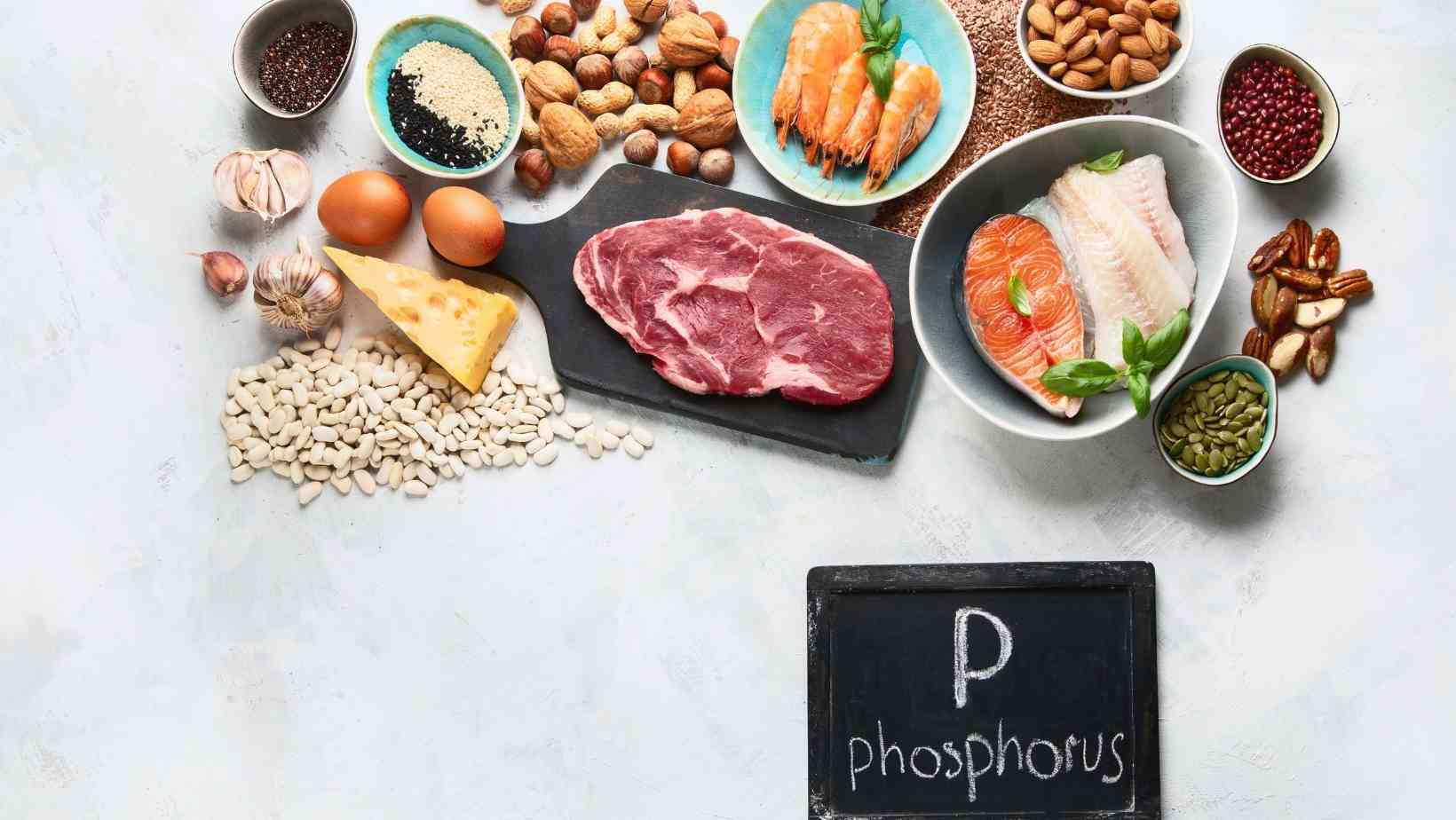In addition to being an important element, phosphorus is required by your body for practically all of its activities. This vitamin may be found in a variety of foods and is often discovered bonded to calcium, demonstrating how these two minerals act in tandem inside the body.
Phosphorus may be found in many parts of the body, although it is found in the highest concentrations in the bones and teeth. It is estimated that your skeletal system contains around 85 percent of the total phosphorus in your body.

What is the purpose of phosphorus?
Phosphorus contributes to your overall health in a number of ways and is an essential component of various physiological systems, including the nervous system. The good news is that since phosphorus may be found in a wide variety of foods, it is typically present in sufficient quantities to prevent phosphorus deficits.
Nonetheless, because of its critical role in the body's processes, you must ensure that you maintain your intake of this mineral. In general, the recommended daily phosphorus consumption for children and adolescents is around 1,250 milligrams, while the recommended daily phosphorus intake for adults is approximately 700 milligrams.
Phosphorus is beneficial to the health of various biological systems, including:
Musculoskeletal and Nerve Health
The musculoskeletal system is composed of your bones, teeth, muscles, tendons, joints, cartilage, and connective tissues, all of which need phosphorus in order to work correctly. Phosphorus aids in the healing and strengthening of bones and teeth, as well as the contraction of muscles and the maintenance of neurons and cells.
The health of the Cells and Tissues
Apart from its role in maintaining the health of your muscles and nerves, phosphorus plays a crucial role in the general health of your cells and tissues. Phosphorus is found in almost all cells, particularly in nucleic acids and cell membranes, and it is essential for energy storage as well as the creation of DNA and RNA.
The State of One's Blood
In order to assist carry oxygen from the lungs to the blood, hemoglobin requires iron, as well as phosphorus and niacin. To keep your blood oxygenated, the molecule 2,3-diphosphoglycerate, which includes phosphorus, collaborates with iron to accomplish this goal.
Phosphorus-Containing Foods
Despite the fact that phosphorus may be found in a broad range of foods, its bioavailability (the amount of phosphorus that is absorbed by the body) is dependent on the kind of food source. Due to the fact that the phosphorus included in plant-based meals is a component of phytates, which the body can not readily absorb, the bioavailability of these foods ranges from 20 percent to 50 percent lower than animal-based diets.
The mineral phosphorus is more quickly absorbed from animal-based sources, but you should exercise caution when eating highly processed meals, which might lead your body to absorb an excessive amount of this mineral at one time.
The five foods listed below are a good source of phosphorus as well as other critical nutrients:
Jump to:
1. Seafood
Fish is a fantastic source of dietary phosphorus, but the quantity you get varies on the sort of seafood you consume. Salmon, for example, has around 315 milligrams per serving, halibut contains approximately 244 milligrams, and scallops include approximately 201 milligrams. Seafood is also high in omega-3 fatty acids, which are essential for the functioning of the heart and the brain.

2. Dairy products
Dairy contains a variety of essential nutrients, including vitamin D, vitamin A, calcium, and potassium, among others. It also contains a significant amount of phosphorus. While milk and yogurt both contain around 250 milligrams of this mineral per serving, cheese has approximately 197 milligrams per serving.
3. Lentils
Despite their low absorption of phosphorus, lentils are a rich source of this mineral. They're also high in folate, fiber, magnesium, and copper, among other nutrients. Lentils contain around 356 milligrams of phosphorus per serving, which means you might absorb up to 50% of it, or approximately 180 milligrams every meal if you consume them regularly. That quantity already accounts for 26 percent of the daily recommended consumption for you.
4. Chickens and other poultry
Poultry is another good provider of phosphorus, which is required by the body. Compared to turkey, which provides around 217 milligrams, the chicken comes in second with 180 milligrams. Eggs, which provide around 86 mg of phosphorus per egg, are also a good option.
5. Peas
Peas are a rich source of dietary phosphorus, much as lentils are. This legume contains around 94 milligrams of phosphorus per serving, with approximately 50% of that amount being quickly absorbed by the body. Peas are also a good source of vitamin K, manganese, folate, fiber, vitamin C, and copper, among other nutrients, in addition to their mineral content. You may get plenty of anti-inflammatory phytonutrients from them as well, like catechin and epicatechin, as well as alpha-linolenic omega-3 fatty acids.




